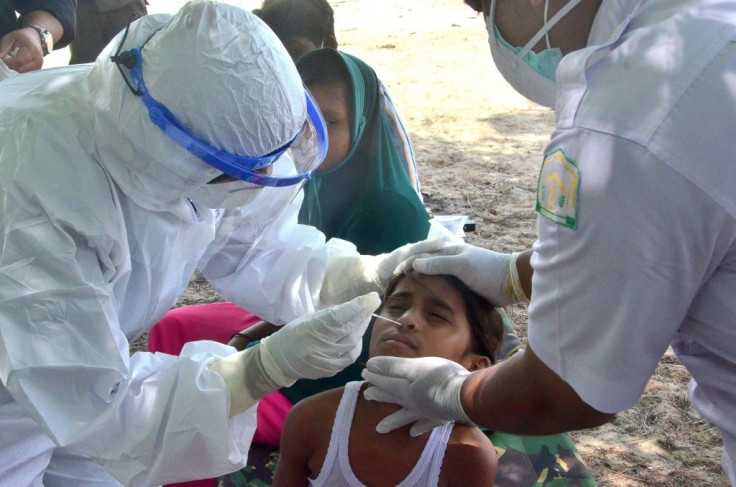Bangladesh Begins Covid-19 Vaccinations For Rohingya Refugees
Bangladesh began vaccinating on Tuesday Rohingya refugees living in congested camps as the impoverished South Asian nation battles a record surge in coronavirus cases.
Health officials say 2,600 Covid-19 cases and 29 deaths have been recorded in the camps housing 850,000 Rohingya but many experts say this is likely a gross underestimate.
The initial inoculation phase will see around 48,000 refugees aged over 55 get Chinese-made Sinopharm shots in the coming three days, local health chief Mahbubur Rahman told AFP.
At Kutupalong, the largest refugee settlement home to more than 600,000 people, Rohingyas including many elderly people queued up to get their shots from health workers in protective suits.
"We are scared of corona. We heard it would be good for us if we get vaccinated, that's why I came here today," said 60-year-old grandmother Rahima Khatun.
"We need the vaccine to live through the current crisis. It will save us from the disease everyone is worried about," said Mohammad Zafar, an elderly man.
Officials said they conducted a massive awareness campaign in the camps with volunteers going door to door among the flimsy shacks where the refugees live.
Shamsud Douza, Bangladesh's deputy refugee commissioner, told AFP that a vaccination drive would also begin this week for 18,000 Rohingya controversially relocated to an island in the Bay of Bengal.
Bangladesh has been hit by a major surge in cases in recent months and much of the country of 169 million people is under lockdown, including the Rohingya camps.

The coronavirus has killed nearly 23,000 people and infected about 1.4 million in Bangladesh, most of them in recent months. Around 98 percent of new infections are from the more transmissible Delta variant first detected in neighbouring India.
Most of the Rohingya in Bangladesh fled an offensive by security forces in neighbouring Myanmar in 2017 and four years later, there remains little prospect of them returning home.
"Vaccination of all age groups is the only effective way to stop the virus (from) spreading further among the Rohingya population in the camps," said Romain Briey, head of the medical charity MSF in Bangladesh.
Hrusikesh Harichandan from the International Federation of Red Cross and Red Crescent Societies said the Rohingya were "living in the shadow of the global vaccine divide".
"Vaccinations are vital for families to live with dignity because staying home is so tough for people in these cramped camps and most still have limited access to water and sanitation facilities, escalating risks from COVID-19."
Officials said they were worried that rains could compel many Rohingya to stay at home and not get vaccinated.
Last month monsoon rains triggered flash floods that destroyed 2,500 shelters and forced the evacuation of over 12,000 refugees.
"Fortunately, there were no rains this morning," said Rahman, the local health chief.
© Copyright AFP 2024. All rights reserved.











